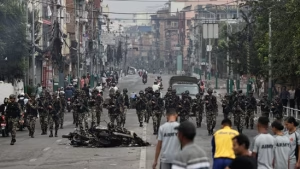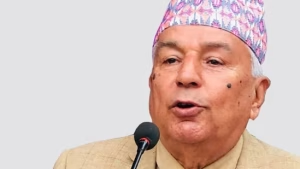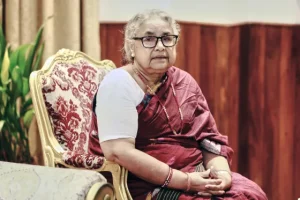Nepal – The appointment of Sushila Karki Nepal Prime Minister marks a historic milestone as the 73-year-old former Chief Justice becomes the country’s first woman Prime Minister. President Ram Chandra Poudel administered the oath of office to Sushila Karki Nepal Prime Minister on September 12, 2025, following days of political turmoil that culminated in the dissolution of Parliament and announcement of fresh elections scheduled for March 5, 2026.
This groundbreaking Sushila Karki Nepal Prime Minister appointment comes after intense Gen Z-led protests successfully brought down K.P. Sharma Oli’s government on September 9, 2025. The ceremony at the President’s residence in Kathmandu signified not only a change in leadership but also a historic breakthrough for women’s representation in Nepal’s highest political office.
Gen Z Movement Forces Political Change

The pathway to the Sushila Karki Nepal Prime Minister appointment began with unprecedented protests by tech-savvy Gen Z activists frustrated with years of political misrule and corruption. These demonstrations, which started as peaceful protests, escalated dramatically after at least 19 people were killed in the government’s brutal response on September 8, 2025.
The violence triggered more intense protests on September 9, when demonstrators stormed politicians’ homes, set them ablaze, and destroyed key government infrastructure including the Supreme Court, Parliament, and Singha Durbar. This symbolic takeover of state institutions forced Oli to step down and seek Army protection, creating the political vacuum that led to the Sushila Karki Nepal Prime Minister selection.
Parliamentary Dissolution Negotiations

The Sushila Karki Nepal Prime Minister appointment process faced significant delays due to disputes over parliamentary dissolution. Gen Z protesters, led by prominent campaigner Sudan Gurung and Kathmandu Mayor Balendra Shah, declared House dissolution “non-negotiable,” arguing that maintaining the existing Parliament would allow the same corrupt parties to retain control and influence.
President Poudel conducted extensive consultations from September 11-12, 2025, with Karki and legal experts, facilitated by the Army. The President initially expressed concerns that dissolving Parliament before appointing a government head could create accountability issues. However, the Sushila Karki Nepal Prime Minister backed the protesters’ demands, ultimately convincing Poudel to proceed with both the appointment and parliamentary dissolution.
Constitutional and Legal Framework
Constitutional expert Bipin Adhikari, a law professor at Kathmandu University, addressed concerns about the Sushila Karki Nepal Prime Minister appointment falling outside constitutional bounds. He stated it was “unlikely” to face legal challenges, explaining that the appointment represents “a remedial measure taken at a time of crisis” with established precedent in Nepal’s history.
The Sushila Karki Nepal Prime Minister will now form an interim Cabinet to oversee essential government functions while preparing for elections within six months. This transitional arrangement aims to restore stability while ensuring democratic continuity through properly conducted elections.
Distinguished Career and Qualifications


The Sushila Karki Nepal Prime Minister brings extensive judicial experience and an impeccable reputation to her new role. Widely regarded as an anti-corruption crusader, she holds a master’s degree in political science from Banaras Hindu University and a law degree from Tribhuvan University. Her judicial career culminated in serving as Acting Chief Justice from April to July 2016, followed by appointment as Chief Justice until her retirement in June 2017.
Former Ambassador Lok Raj Baral praised the Sushila Karki Nepal Prime Minister selection as “wholly justified,” citing her clean image and upright personality as essential qualities for the current crisis. Baral emphasized that her primary challenges include maintaining law and order, boosting confidence among state institutions, and overseeing free and fair elections.
Immediate Priorities and Challenges
The Sushila Karki Nepal Prime Minister faces several urgent priorities in her interim role. Constitutional expert Adhikari identified two critical tasks: conducting independent investigations into the September 8 violence and prosecuting those responsible for attacks on state infrastructure. Additionally, the interim government must pave the way for constitutional reforms to strengthen democratic accountability.
The new Prime Minister must also restore public confidence in government institutions while ensuring peaceful conditions for the upcoming March 2026 elections. Her success will largely depend on maintaining the delicate balance between satisfying Gen Z demands for reform and preserving democratic stability.
International Response and Future Outlook
The Ministry of External Affairs of India welcomed the Sushila Karki Nepal Prime Minister appointment, expressing hope that the interim government would foster peace and stability. India committed to continuing close cooperation with Nepal as “a close neighbour, fellow democracy and long-term development partner.”
The Sushila Karki Nepal Prime Minister appointment represents more than just political transition; it symbolizes hope for democratic renewal and gender equality in South Asian politics, setting a powerful precedent for women’s leadership in the region.

